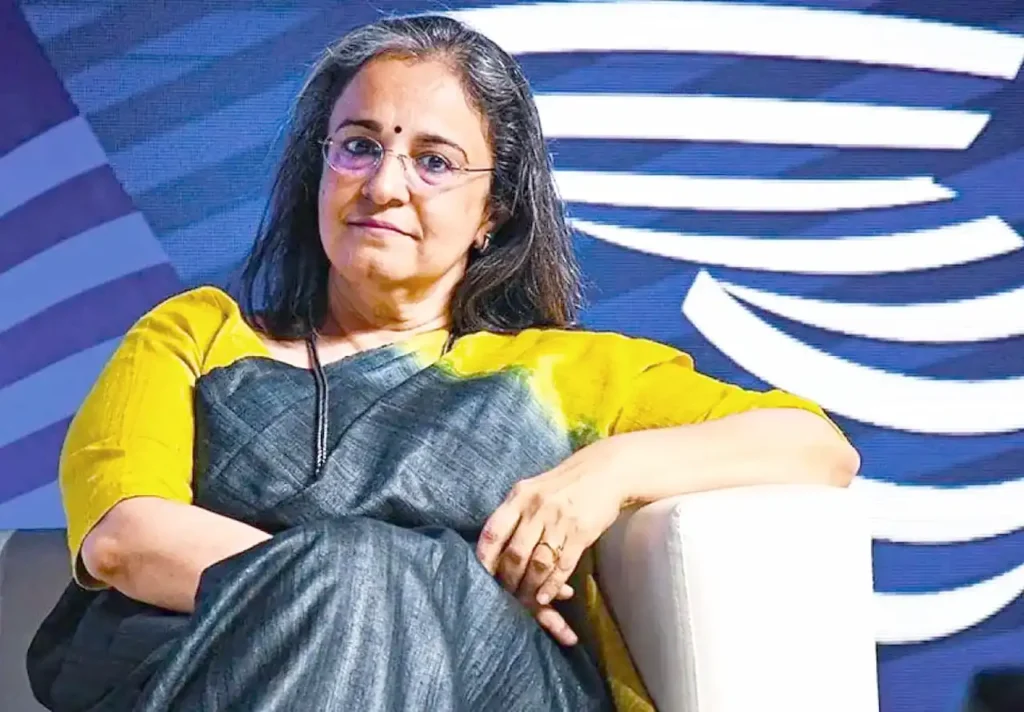Allegations against SEBI chief Madhabi Puri Buch create internal dissent and external scrutiny, raising concerns about the regulator’s credibility.
Allegations and Conflicts Surrounding SEBI Chairperson
Madhabi Puri Buch, the chairperson of the Securities and Exchange Board of India (SEBI), is facing mounting pressure following multiple allegations of conflict of interest. These accusations, brought forward by various sources, challenge her credibility as the regulator’s head. Over the past month, at least four significant allegations have emerged, most of which Buch has denied, while others remain unaddressed.
The allegations have surfaced at a time when India’s equity markets are experiencing a bullish phase, with foreign investors contributing over $6 billion and an influx of new retail investors participating in mutual funds and IPOs. Despite this positive market environment, Buch’s leadership is under scrutiny, and the accusations have ignited a wave of concerns.
Accusations from Political and Corporate Figures
The controversy surrounding Buch began in August, when U.S.-based Hindenburg Research accused her and her husband of holding investments in an offshore fund linked to the Adani Group, suggesting this was why SEBI was slow in investigating allegations against Adani.
The opposition Congress party further alleged that Buch received rental income from a company she was investigating, along with claims that she held an “office of profit” at ICICI Bank, continuing to benefit from Employee Stock Ownership Plans (ESOPs) after her employment ended.
Subhash Chandra Goyal, Chairman Emeritus of Zee Entertainment Enterprises, added to the controversy by accusing Buch of being responsible for the failure of a merger between Zee and Sony. He publicly called her “vindictive” and “corrupt,” although Goyal himself is under regulatory scrutiny and facing accusations of fund diversion.
Internal Dissent Within SEBI
Perhaps the most troubling development for Buch has been the internal dissent at SEBI, which became public when employees staged a rare protest at SEBI’s headquarters on 5 September. Around 1,000 employees expressed their dissatisfaction with the leadership, citing a toxic work culture. Reports revealed complaints about “immense pressure,” “public humiliation,” and other concerning behaviors during meetings.
While SEBI dismissed these claims as “misguided,” the protestors called for the immediate retraction of this statement. The unusual protest has raised alarms within the industry, with analysts such as Hemindra Hazari commenting on the seriousness of the situation, stating, “Internal issues coming to light alongside external allegations indicate something is severely wrong.”
Buch’s Defense and Future Implications
Madhabi Puri Buch has responded to the accusations, firmly denying any conflicts of interest in the Adani case. ICICI Bank also issued a statement clarifying that Buch received only her retirement benefits and no ESOPs or salary after her tenure ended. However, she has remained silent regarding the internal dissent at SEBI and accusations from figures like Goyal.
As the first female and youngest chairperson of SEBI, Buch has been credited with implementing stricter rules on insider trading and improving auditing practices. However, the current allegations raise concerns about SEBI’s transparency and governance, with experts questioning if the same high standards SEBI demands from public companies apply to its own leadership. Sucheta Dalal, a prominent financial journalist, highlighted the need for more stringent disclosure rules for senior regulatory officials, pointing to discrepancies in ICICI Bank’s statement regarding Buch’s ESOP policy.
Shriram Subramanian from InGovern Research suggests that this controversy serves as a “learning” experience not only for SEBI but also for other regulatory bodies like the Competition Commission and the Insurance Regulatory and Development Authority of India, calling for more robust disclosure processes.
The Road Ahead for SEBI and Market Sentiment
Despite the allegations, foreign investors remain largely unfazed, as regulatory risk is already factored into their investments in India. However, Hazari warns that if the controversy escalates, institutional investors may start withdrawing, which could also affect retail investors.
Market observers believe that Buch’s current three-year term, which ends in February 2025, may not be renewed. Subhash Garg, a former finance secretary, has commented that while Buch’s position was already “untenable,” it is becoming increasingly “unsustainable.” A resignation or suspension, however, would be seen as an admission of guilt—something neither Buch nor the government is likely to want.
Experts are also calling for the SEBI board and government to step in and address these concerns, as investor sentiment may be impacted by how this issue is handled in the coming months.
Now You Can Follow Our Channel On WhatsApp!

